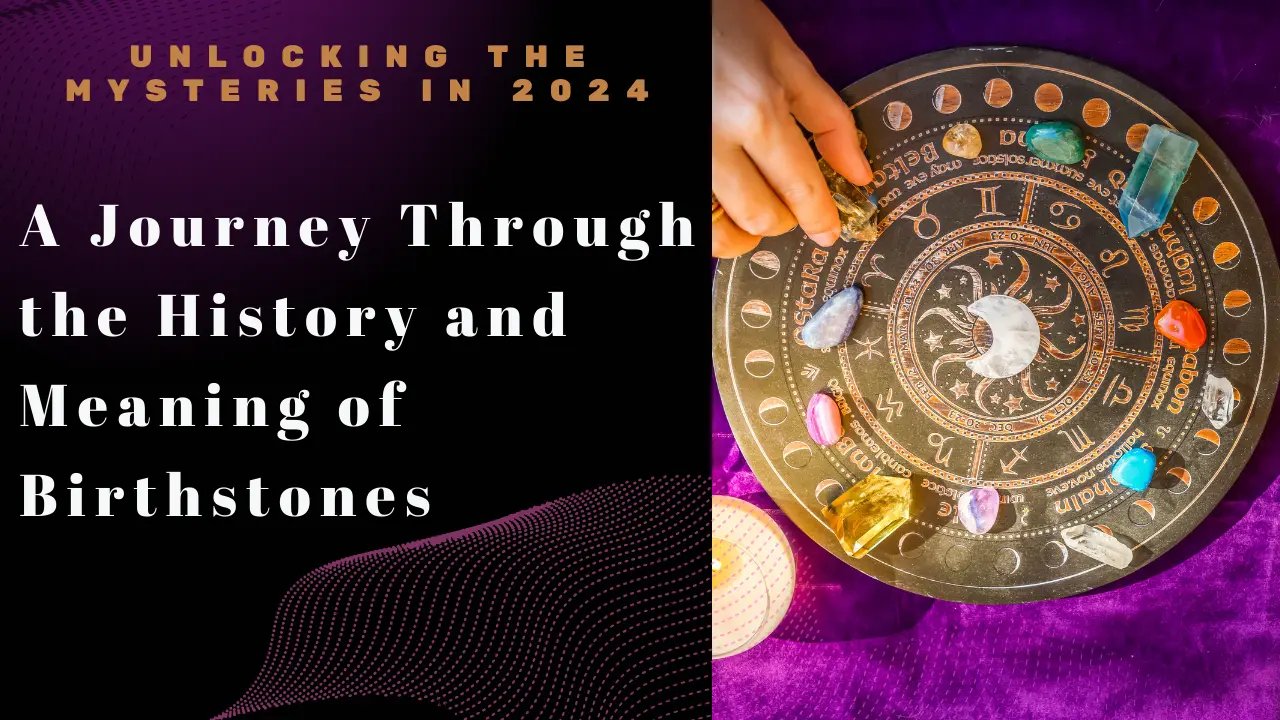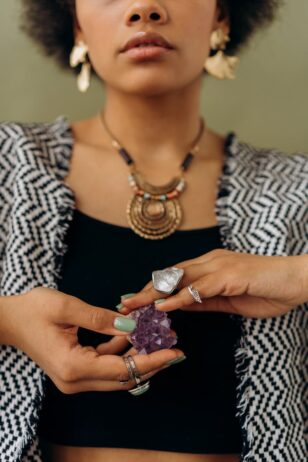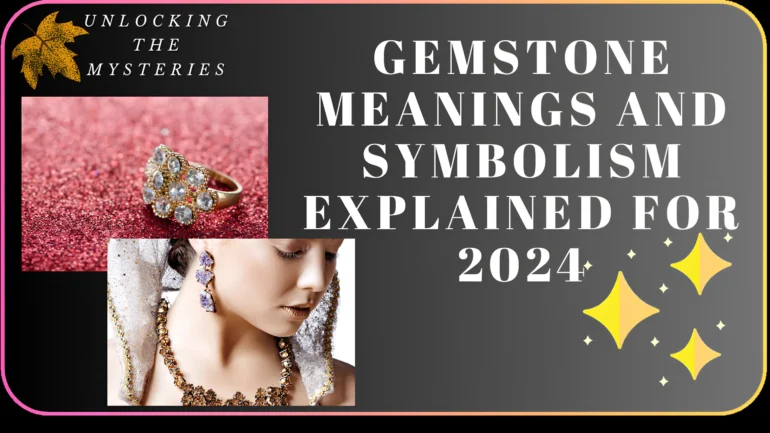Birthstones have captivated human imagination for centuries, symbolizing more than just beauty. These precious gems carry rich histories, profound meanings, and deep symbolism that span across various cultures and epochs. In this blog, we’ll delve into the origins, traditions, and myths surrounding birthstones, unlocking the secrets behind their enduring allure.
The History of Birthstones
Ancient Beginnings
The concept of birthstones dates back to biblical times. The earliest reference to birthstones is found in the Book of Exodus, where the Breastplate of Aaron is described. This religious garment was adorned with twelve gemstones, each representing one of the twelve tribes of Israel.
Birthstones in Antiquity
In ancient cultures, gemstones were believed to possess magical properties and were often used as talismans or amulets. The ancient Greeks and Romans attributed various healing properties and protective qualities to different stones, laying the groundwork for the modern birthstone tradition.
The Evolution of Birthstone Traditions
The tradition of associating specific gemstones with particular months likely evolved over time. By the 18th century, the practice became more standardized, with jewelers in Poland and the surrounding regions promoting specific stones for each month.
Modern Birthstone Lists
In 1912, the American National Retail Jewelers Association (now Jewelers of America) created an official list of birthstones, which has been periodically updated to include new gems and reflect changing tastes and availability.
Birthstone Meanings and Symbolism
January: Garnet
- Meaning: Protection and strength
- Symbolism: Garnet is said to keep the wearer safe during travel and symbolize friendship and trust.
February: Amethyst
- Meaning: Peace and clarity
- Symbolism: Amethyst is believed to calm the mind, enhance clarity, and protect against intoxication.
March: Aquamarine
- Meaning: Tranquility and courage
- Symbolism: Aquamarine is associated with the sea, promoting calmness and bravery.
April: Diamond
- Meaning: Love and eternity
- Symbolism: Diamonds symbolize everlasting love, making them popular in engagement rings.
May: Emerald
- Meaning: Rebirth and love
- Symbolism: Emeralds are linked to fertility, rebirth, and deep, unwavering love.
June: Pearl
- Meaning: Purity and wisdom
- Symbolism: Pearls are associated with innocence and are believed to bring wisdom through experience.
July: Ruby
- Meaning: Passion and protection
- Symbolism: Rubies symbolize intense emotions, passion, and are thought to provide protection from harm.
August: Peridot
- Meaning: Strength and healing
- Symbolism: Peridot is believed to bring strength, health, and a sense of renewal.
September: Sapphire
- Meaning: Wisdom and royalty
- Symbolism: Sapphires are associated with royalty and wisdom, providing mental clarity and protection from envy.
October: Opal
- Meaning: Inspiration and creativity
- Symbolism: Opals are thought to enhance imagination and bring out one’s inner creativity.
November: Topaz
- Meaning: Joy and abundance
- Symbolism: Topaz is associated with joy, generosity, and good health.
December: Turquoise
- Meaning: Protection and luck
- Symbolism: Turquoise is a symbol of good fortune and protection against negative energy.
The Lore and Legends of Birthstones
Myths and Legends
Every birthstone carries with it a treasure trove of myths and legends. For instance, ancient Egyptians believed that garnet protected against the perils of the night, while the Greeks thought that amethyst could ward off drunkenness.
Birthstones in Astrology
In many cultures, birthstones are linked with astrological signs. For example, those born under the sign of Aries might be encouraged to wear diamonds to bring balance and clarity to their lives.
Cultural Significance
Different cultures ascribe unique meanings to birthstones. In India, navaratna, a sacred arrangement of nine gemstones, is believed to bring balance and positive energy to the wearer’s life.
Birthstone Traditions Around the World
Western Birthstone Traditions
In the Western world, birthstones are primarily associated with the month of birth. Jewelry featuring these stones is often given as birthday gifts, believed to bring good luck and protection.
Eastern Birthstone Traditions
In Eastern traditions, such as those in India and China, birthstones are selected based on astrological signs and are believed to bring balance to the wearer’s life.
Modern Birthstone Gifts
Today, birthstone jewelry is a popular gift for birthdays, anniversaries, and other significant milestones. These gifts are cherished not only for their beauty but also for their personal and emotional significance.
The Significance of Birthstones Today
Birthstones continue to hold a special place in modern culture, symbolizing individuality and personal connection. They serve as a reminder of our heritage and the ancient traditions that have been passed down through generations.
Personal and Emotional Connection
Wearing a birthstone can create a profound emotional connection, serving as a personal talisman that represents one’s identity and history.
Birthstones in Popular Culture
Birthstones often appear in literature, films, and art, symbolizing various themes and emotions. Their enduring popularity speaks to their deep-rooted significance in human culture.
Choosing Your Birthstone Jewelry
When selecting birthstone jewelry, consider the meaning and symbolism associated with the stone. Whether it’s a piece that represents love, protection, or wisdom, choosing a birthstone can add a layer of personal significance to your jewelry collection.
Frequently Asked Questions
What is the history of birthstones?
Birthstones date back to biblical times, with the earliest reference found in the Book of Exodus. Over centuries, different cultures attributed various magical and protective properties to gemstones, leading to the modern birthstone tradition.
What is the meaning of my birthstone?
Each birthstone carries its own unique meaning and symbolism. For example, garnet represents protection and strength, while amethyst symbolizes peace and clarity. The specific meaning depends on the gemstone associated with your birth month.
How do birthstones vary across cultures?
In Western cultures, birthstones are linked to the month of birth. In Eastern traditions, such as in India and China, they are often selected based on astrological signs and are believed to bring balance and positive energy to the wearer’s life.
Conclusion
Birthstones are more than just beautiful gems; they are steeped in rich history and deep symbolism. From ancient civilizations to modern times, these stones have captured our imagination and held a special place in our hearts. As we journey through the history and meanings of birthstones in 2024, we uncover the enduring allure and significance these precious gems hold in human culture.
Teddy Jewellers
Also Read From “Teddy Jewellers”
| Sparkle & Shine: 10 DIY Jewelry Cleaning Hacks for Effortless Glamour | Find your Sparkle & Shine Here |
| Emma Mackey’s Signature Jewelry Style: | Dive into Her Stunning Collection Here |



